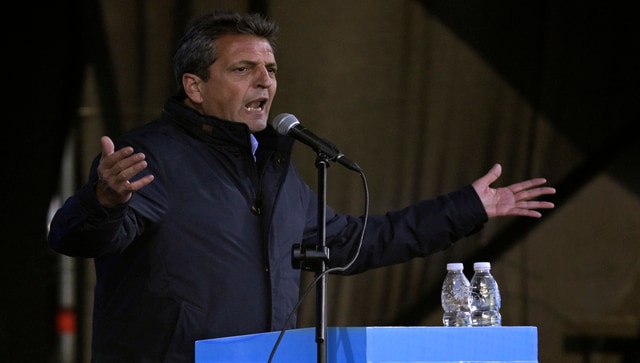Ahead of Presidential polls, Argentina parliament passes bill to abolish income taxes; know why Only those workers earning the equivalent of 15 federal minimum wages, amounting to 1.77 million pesos per month ($5,057), will continue to be subject to income taxes, constituting a minority of the workforce FP Staff Last Updated:September 29, 2023
Argentina’s parliament has passed a bill aimed at abolishing income taxes for nearly all formal workers, a move strongly backed by economy minister Sergio Massa, who is aiming for the Presdent’s post in October elcetions.
The move is expected to exert additional pressure on the country’s burgeoning fiscal deficit, which has been a driving force behind the alarming 124 per cent inflation rate in the lead-up to October’s presidential elections.
The bill, which was endorsed by a Senate vote of 38-27 late on Thursday, received strong support from Massa. Massa’s political coalition had secured a third-place finish in the primary vote held in August. President Alberto Fernandez is anticipated to sign the bill into law, with the upcoming elections scheduled for 22 October.
While Massa had previously issued temporary decrees exempting 99 per cent of salaried payroll workers from income taxes, this new legislation will institute a permanent removal of income taxes. Only those workers earning the equivalent of 15 federal minimum wages, amounting to 1.77 million pesos per month ($5,057), will continue to be subject to income taxes, constituting a minority of the workforce. However, it is important to note that a new government will assume office on 10 December, potentially leading to a reversal of this measure.
In conjunction with his tax reduction efforts, Massa is striving to regain lost electoral ground through substantial expenditure. His initiatives include providing financial support to millions of informal workers, augmenting social security benefits, and increasing salaries for public sector employees. Economists estimate that these measures will incur a cost of 2 trillion pesos ($5.7 billion), primarily financed through central bank money printing, a move that could exacerbate future inflation.



It’s really sad, but Argentina has no masters plan as a nation. It’s constantly trying last ditch efforts to right itself in any way, but mostly failing. There’s no social cohesion, no shared interests, it’s a goddam jungle. It’s a miracle that it stays together and not breaking into pieces. It’s a pity. So much potential (geographical and human) wasted.